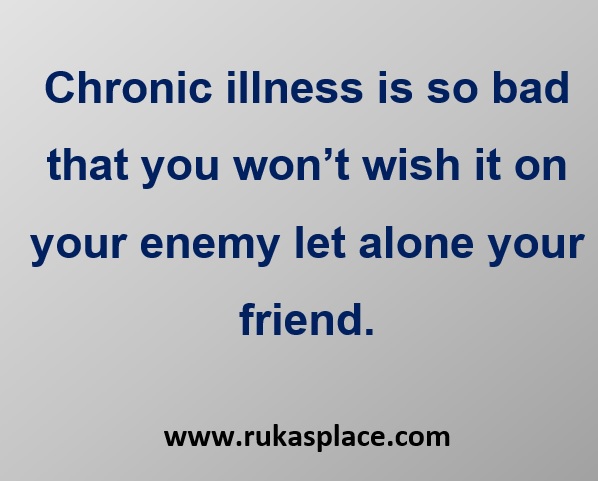
Halloo,
Common, let’s get rid of some of the stigmas and stereotypes associated with Mental Illness.

It is impossible for me to cover everything in this post, I am relying on you to help add some to this known stigma and stereotypes to the list. Please add things you think are misrepresented about Mental Illness and the people who suffer from it in the comment section below.
I suffer from Depression and Anxiety because of living for a long time with Fibromyalgia. I am a highly capable human being. I like to think I am a trustworthy well-behaved person, feel free to correct me. So, I am not ideally what many people have in their head as someone with mental illness. Check this book out- Key Concepts in Mental Health
The stereotype for someone with mental Illness is someone who is unable to function normally, can’t care for herself, can’t have intelligent conversations. All these are far from the truth. It is not a proper representation of all cases of mental illness.
This type of stigma and stereotype is why many people are still walking around either untreated or too ashamed to let their nearest and dearest know they suffer from one form of mental illness or another.
Some are ashamed because of the stigma associated with Mental Illness, I was too. But that is over now. I have decided that my way of taking control is to be open about it, maybe that will encourage someone to get the necessary help and have a good quality of life.
I also hope family and friends of those suffering might learn a thing or 2 from my write-ups and be in a position to help better. Because help starts with them.

Mental Illness and people affected by it are a lot of things, but not these:
1- NOT ALL MENTAL ILLNESS CASES ARE ABOUT PEOPLE RAVING MAD
I think the image that still jumps to some people’s head when they hear you have a mental illness is that you will soon be roaming the street naked, or walking around talking to yourself or be confined to a mental hospital. Not all cases are these severe. Some people have anxiety, this can come in different shades or form. Mental Illness is a broad term that covers a wide range of situations. But what is most common is the unconditional support needed from people around to help those affected by mental illness. Not all people suffering from mental illness are totally broken or unfixable. Check this book out- Key Concepts in Mental Health
2- NOT ALL BAD OR IRRATIONAL DECISIONS MADE BY SOMEONE WITH MENTAL ILLNESS IS DUE TO THEIR CONDITION.
It is important to separate a person behaving badly from their mental illness. People behave badly all the time, they make impulsive reckless decisions, have outbursts, or throw tantrums when things don’t go their way. Not all these are due to mental illness, this is just a stereotype of what is expected from all mental Illness patients. I know a lot of people who are affected by one mental illness or another but they are kind, considerate, thoughtful, trustworthy, and very intelligent. I personally think that Depression has made me more of a thoughtful person than I was before it.
3- NOT ALL THOSE AFFECTED BY MENTAL ILLNESS CAN’T LIVE A NORMAL LIFE
What is a normal life, anyway? If we are talking about having a career, starting and building a business, getting married and having children, or making a difference in the world. Then please check stories of successful people who built glittering careers for themselves while living with Mental illness, oh, the list is endless. Some cases of Mental Illness like Depression made me resilient.

4- NOT EVERY PERSON WHO ACTS PECULIAR HAS MENTAL ILLNESS
There are people who are just odd, they don’t do things others do. Please, Please, Please don’t assume they have a mental illness. This is a type of stereotype that is not needed by anyone. We have been preconditioned into thinking what is normal and what is not normal in people but the reality is that we are all created differently, so when someone does not like to talk or prefer to be by themselves, let’s not automatically assumed they must be suffering from mental illness. Check this book out- Key Concepts in Mental Health
5- NOT TAKING TIME OUT TO UNDERSTAND MENTAL ILLNESS IS NOT HELPING
Please spare a few minutes to read up on what mental illness is. This will be beneficial not just for yourself but for everyone associated with you. I think understanding will help develop empathy. Your understanding will help create rapport and encourage those affected to feel free to talk with you. And you will be in the best position to know how to help someone in need.
6- NOT ALL YOU HEAR IN THE MEDIA ABOUT MENTAL ILLNESS IS TRUE
Because a celebrity who suffer from one type of mental illness behaved in a certain way does not mean that everyone with the same mental illness has to behave like that. Everyone is different. We react to things differently. So, using what is being said in the media as a template for your family and friends is the kind of stereotyping not needed. Check this book out- Key Concepts in Mental Health
Some people with mental illness committed suicide, some don’t. Some think about it, some say the thought never crossed their minds. It is not a one cap fits all situation.

You want to help? Then listen to the person you want to help, then encourage them to seek professional help. Meanwhile, go for walks, talk, cook, exercise, dance, or sing together.
Please remember, it is not always bleak and doom with people affected by mental illness, we do smile and laugh too.

Stay with me,
Ruka.
Check this book out- Key Concepts in Mental Health


[…] everything thrown at her, and ME, the woman who fights back and who refused to be defined by an invisible illness. You will join me in saying I am a successful […]
[…] and attitudes affect young people badly, leading to a wide range of mental health issues, even suicide. Why do we not talk to our Children about the consequences of their words and […]
[…] be one of those people who always have suggestions, advice, information for people suffering from invisible illnesses but never take concrete action or stop to […]
[…] of these people, in fact, most of these people have good intentions. They genuinely believed they are saying the right […]
[…] read it as you don’t have any interest in speaking to me and absolutely do not appreciate the time and efforts that go into making that […]
[…] ways to make my life as uncomplicated as possible, any ways I can achieve happiness and guard my mental health is always of interest to […]
[…] whose only topic of conversation is talking and slagging other people. I beg you to check out. Healthy conversations should include progressive things and shouldn’t be about judging and putting others down. My rule […]
[…] are either not taking self-care seriously. Or doing it in a way that will eventually damage their mental health, and ultimately affects the people around […]
[…] stayed with you in your hour of need. I don’t care whatever you are going through. Just remember how it feels to have nobody to turn to. That shouldn’t happen to people who are there for […]
[…] To those who don’t live with chronic pain or any form of invisible illness for that matter it can be hard for them to realize that almost all aspects of our lives are affected by our illnesses. […]
[…] seeing a particular image affect us and our perception. It will be naïve and foolish to think you won’t be affected by what you see on social […]
[…] I see a page of someone who posts regularly on marriage. I can tell whether they have original thoughts on the matter, or religious point of view, how […]